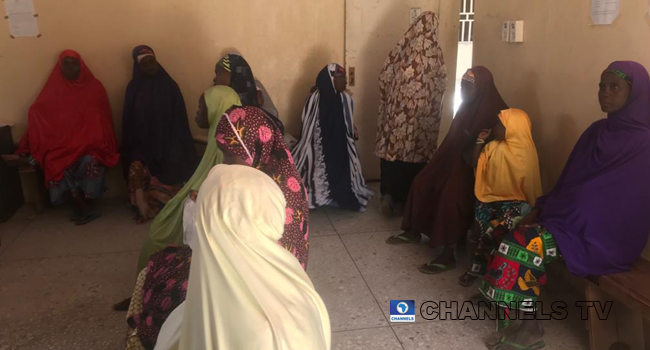
Pneumonia is one of the leading causes of deaths in Nigeria with about 18 deaths every hour, according to a 2018 UNICEF survey.
Over the years, the government and many development partners have made efforts to ensure the prevention and good management of pneumonia cases in the country
However, while the global death rate has reduced by 51%; in Nigeria, it has reduced by only 8%.
Experts say that the COVID-19 pandemic will lead to a significant increase in the number of pneumonia deaths, hence the need for more effective strategies to combat the scourge.
In the remote village of Katanga, in Kiyawa local government of Jigawa state, northwest Nigeria, access to comprehensive health care is a challenge, as there is no medical doctor in all the health facilities in the local council.
The primary healthcare manager in Kiyawa local government, Malam Musa Nababa, says children suspected to be infected with pneumonia are referred to the Dutse general hospital for further analysis and treatment.
“Our staff here are trained to identify patients with pneumonia,” Malam Musa says. “And since you know the symptoms of pneumonia are similar to some other diseases. So, if we suspect it’s pneumonia, then we refer the patient to our general hospital in the state capital.”
He added that “the routine immunization going on in the primary health centers can go a long way in preventing children from falling victims of pneumonia and other diseases.”
Jamila Sama’ila is a mother of two in Katanga village and she tells Channels Television in an interview that she got medical advice from a radio program named “Kula da Lafiya” sponsored by Save the Children’s Inspiring Project.
“They gave us a radio receiver and told us to tune to it whenever the program is on air, and this is how I learn how to protect my children from becoming victims of pneumonia,” Sama’ila says.
“We learned the significance of personal hygiene and understand the dangers of exposing our children to smoke.”
She added: “Now, whenever we come out of the toilet we have a tippy-tap that we use for handwashing. Before feeding our children we also must wash our hands.”
In the management of pneumonia cases, medical oxygen is an essential facility. The Director of Clinical Services, Pharm Ibrahim Hasan, says it is only recently that the hospital was able to get a donation of an oxygen system to the hospital.
“The maintenance we have is not proactive, it is when an incident happened then we begin thinking of how to rectify it,” the director says. “And oxygen is always needed in the hospital. But now we have set up a committee to which would be looking into these challenges and proffer solutions.”
The district head of Kiyawa local government, Alhaji Adamu Aliyu Kiyawa, says that traditional means of healing is becoming a major challenge to healthcare delivery in the state.
According to him, because of the economic situation, people seem to prefer traditional treatment than the conventional version, and this is complicating the general health of the public.
“Some of these so-called traditional healers are a fraud. And even the genuine ones have no proper administration and this results in complicating the health of the patients,” the district head said.
“But because of the economic situation, people seem to be more at ease with the traditional means for its affordability.”


